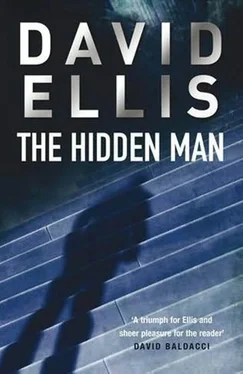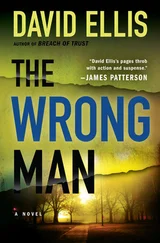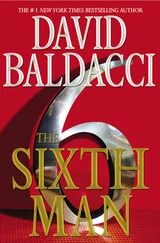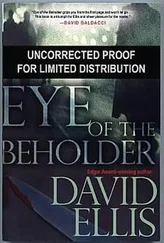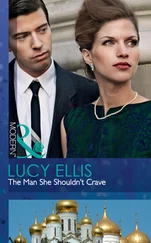I remember the next morning, Mrs. Thomas hugging Sammy’s mother, trembling uncontrollably, apologizing for not having done more. What could she have done?
I wondered if Mrs. Thomas was still alive. It was possible. It was less possible that I was going to prove that Griffin Perlini killed Audrey Cutler.
I drove on, turning on 47th and heading six blocks west, then three blocks south, then two more blocks west. The house was in the middle of the street, a ranch-style with a roof that was openly suffering, old vinyl siding, and a neglected lawn. I’d passed the house several times, more as a curiosity than anything else. I’d never gone in or thought of going in. I’d thought of a few other things, like putting a few bullet holes through the windows, but as a teen I never did anything more than pass by the home of Griffin Perlini and stare.
An elderly woman stepped out onto the porch and took the mail from the slot. I found myself getting out of my car and approaching. I caught the woman’s attention, and she didn’t seem concerned. This wasn’t a nice neighborhood, but I was in courtroom attire and I didn’t pose any visible threat to her.
“Mrs. Perlini?” I asked, taking a wild shot. Griffin Perlini hadn’t lived with his mother at the time of Audrey’s abduction, and I had no idea what had happened to the house afterward.
The woman didn’t respond, but she opened herself up toward me, receptive to my question. Had Griffin Perlini’s mother moved into this home after he left?
“Mrs. Perlini?” I asked again, as I slowly approached the porch.
“Can I help you?” Her voice was weak, befitting her small frame. She was wearing a light sweater and gray pants that perfectly matched her long hair.
Wow. I’d lucked out. This woman was Griffin Perlini’s mother.
“Mrs. Perlini.” I stopped short of the porch. “My name is Jason Kolarich.” I gestured behind me. “I grew up around here.”
“Oh.” Her voice softened, but she didn’t smile. “You knew-did you know-”
“Griffin? No, ma’am. I mean-no. But that is why I’m here.”
Her face moved into a full-scale frown. She kept her composure, watching me and letting silence fill in the blanks.
“I’m a lawyer, Mrs. Perlini. I’m defending Sammy Cutler.”
She nodded, as if somehow she suspected as much. I could have predicted any number of reactions, but she seemed to accept me as if I’d said I was selling something she knew she had to buy but didn’t particularly want to.
She lowered her head, as if she was speaking in confidence. “You knew the Cutlers?”
“I lived next door.”
“I see.” Her gaze drifted off, over my head, beyond me. I couldn’t imagine what it must have been like for her, everything her son became, everything he’d done.
“You’ll want to come in, then.” Mrs. Perlini walked into her house. I took the steps up and opened a flimsy screen door. I didn’t know what I was doing or what I was hoping to accomplish. This whole thing had been a lark, and now I was about to have a conversation with Griffin Perlini’s mother.
I sat down on a flimsy couch while I listened to her toil in the kitchen. The clinking sounds told me she was making coffee. I didn’t want coffee, but I wanted anything that would elongate this conversation.
The place was drab but well-kept. The walls were painted lime green and were covered with photographs, in some of which I recognized Griffin, but it was clear that there were several children in the family. A good-sized crucifix was prominently centered.
Five minutes later, Mrs. Perlini was placing a cup of weak-smelling coffee in front of me. She sat in a rocking chair across from where I sat and held her cup of coffee in her lap. She didn’t seem in a hurry to take the lead, but as soon as I cleared my throat and started up, she chimed in.
She asked me, “Do you think what he did was justified?”
I assumed she was referring to what Sammy did, killing her son. “Do you want me to answer that?”
“I suppose not.” She studied her coffee cup but didn’t drink it.
“Do you ?” I asked.
“Do I think it was justified?” She thought about that a moment. “I suppose from his perspective-” She struggled with her answer. “Your first instinct is to protect your children.”
“Sure.”
“But when your child’s sickness hurts other people-innocent children-well, it allows you to see more than one perspective.”
I looked again at the gold crucifix on the wall. This woman must have spent a good deal of time conversing with the Almighty. You chalk it up to a sickness, I imagine, like she’d said. It’s not my fault. It’s nothing I did. My son was ill . But do you believe that? Is there a part of you that thinks back, that second-guesses, that wonders if you’d done something differently-
“I have to prove that your son killed Audrey Cutler,” I said. “And I’m wondering if you can help me with that.”
She closed her eyes and whispered something to herself. I had the sense she was praying. For some reason, I felt a rush of anger. I’d had a few go-rounds with the Almighty myself, but it hadn’t helped any. I tried cursing Him for what happened to Talia and Emily, but the conversation always ended with the blame stopping at my doorstep. I surely didn’t blame God for their deaths. But I didn’t find comfort, either, and I found myself back to my childhood bouts with religion and logic. Faith, by definition, is the absence of proof, and as a logician, a lawyer trained in linear thinking, I struggled to make sense of a line of logic that had no end.
My family was dead, and there was nothing upstairs that could explain why. The truth was, I was afraid not to believe, afraid of being left off the guest list when my time came, but if push came to shove, if I really challenged myself with a focused question, I didn’t have an answer. I didn’t know if I believed or not. Maybe that, itself, was an answer.
“I just want the truth,” I said, interrupting her reflection. “Surely God wouldn’t want you to lie.”
She opened her eyes. I didn’t like what I saw in them. She wasn’t angry so much as concerned. “I wasn’t asking for advice,” she told me. “I was asking for strength.”
I decided to remain quiet. I didn’t want to insult her further and I didn’t want a sermon, either. I just wanted an answer.
“He never told me he kidnapped that poor girl, if that’s what you’re asking, Mr. Kolarich. He told me the opposite, in fact. Now, I may be a lot of things, but I’m not ignorant. I know my son. I know he did things.” She drank from her cup and let the liquid play in her mouth. I suddenly felt very small.
“He was always troubled,” she went on. “Always. He never bothered much with girls, but I just thought he was slow to develop that interest. Growing up, he was so introverted, so tortured, but I never knew him to act on any of the impulses that he obviously had. I never knew. Does that sound odd? A mother didn’t know her son had this horrible sickness.”
She drank from the cup again and nodded to herself. “About a year before-before his first arrest-that was when I first discovered something about his-his preferences.” She shrugged. “I honestly had no idea before that time.”
I knew, vaguely, that her son had a criminal record before Audrey was abducted, which was the reason the police had focused on him so quickly.
“What happened?” I asked her.
“Oh, well, Griffin-he injured his knee very seriously. He tore the-his anterior something-or-other?”
“The anterior cruciate ligament,” I said. It was a common injury in football. A buddy of mine at State tore his ACL and never played ball again.
Читать дальше
